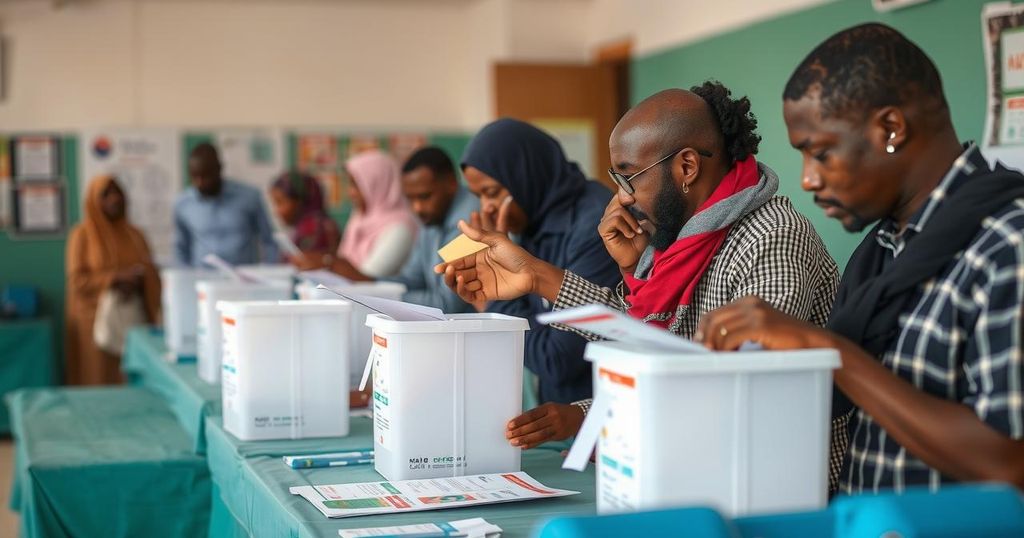Chad’s Parliamentary Election: Tension and Apathy Amid Opposition Boycott
Chad is conducting its first parliamentary election in 13 years, with opposition parties advocating for a boycott, citing pre-determined results. Low voter turnout has been reported, and the government claims a historic turnout among military personnel and nomadic communities. Allegations of electoral fraud and calls for vigilance from opposition party members highlight the contentious nature of this election, which is deemed critical for Chad’s democratic transition.
Voting has commenced in Chad’s inaugural parliamentary election in 13 years, framed by the government as a pivotal step toward reinstating democratic governance following military rule. The electorate is tasked with selecting representatives for a new parliament, provincial assemblies, and local councils in a nation struggling with considerable economic challenges. Notably, the opposition has called for a boycott, urging the electorate to refrain from participating in what they claim to be a predetermined electoral process. Reports indicated low voter turnout in the capital, N’Djamena, with officials attributing the apathy partly to the chilly weather.
Chad, an impoverished nation with a population of approximately 18 million, has seen turmoil in its political landscape, especially after President Mahamat Idriss Deby Itno assumed power via military intervention in 2021. This election is perceived as a significant moment in Chad’s political evolution, with the ruling authorities seeking to establish legitimacy through democratic practices. However, opposition parties have expressed skepticism regarding the integrity of the electoral process, which they argue is marred by preordained outcomes and fraudulent practices.
In conclusion, the conduct of the parliamentary elections in Chad is fraught with tension, as indicated by the opposition’s boycott and allegations of electoral fraud. While the government claims a significant voter turnout, disenchantment among the populace remains apparent, particularly in urban centers. The overall atmosphere raises concerns regarding the future of democracy in Chad, under the shadow of military influence and persistent socio-economic challenges.
Original Source: www.aljazeera.com




Post Comment